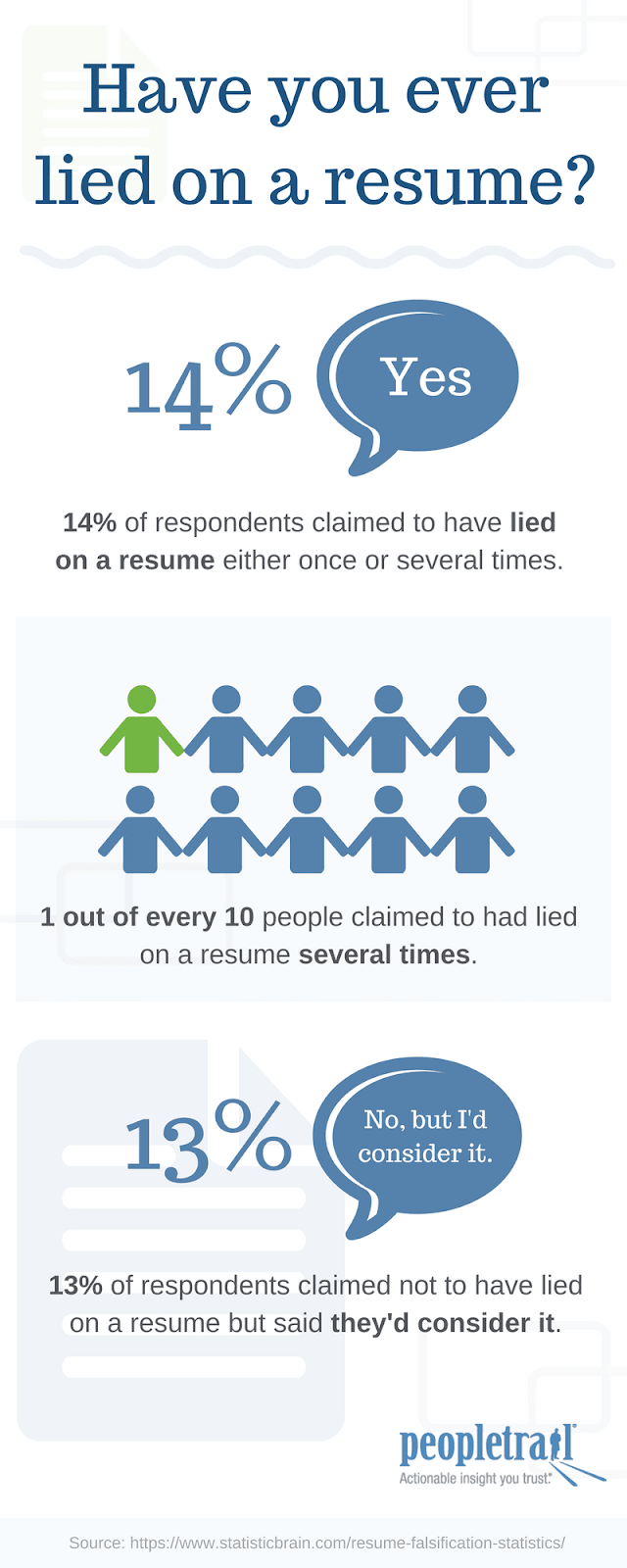Honesty is the best policy—but not according to some job seekers. New research shows that the number of applicants who have lied on a resume is on the rise. How much does it affect your business? What happens if you hire a person who lied on his/her resume?
First of all, lying on your resume is simply a bad idea. What happens if you get caught? From the pre-employment background check to the meetings that make up the interview process, there are just too many opportunities for the truth to be revealed. And for obvious reasons, if you’re caught lying, the job offer will almost certainly leave the table.

Having said all this, as a human resource professional, what can you do to determine the legitimacy of resume information? Most employers get a hint when the candidate exaggerates their experience or tells stories that seem more like fiction novels.
Here are some ways you can track down resume lies of the potential candidates:
- Conduct a background check – Not all employers conduct formal background checks, but you must do. Conducting a background check is the best way to verify personal and employment information. Get a quick estimate of how much they cost.
- On-the-spot quiz – It might be easy for people to exaggerate their skillset, so surprise them by asking them to demonstrate their talents in a skill test.
- Quick verification – Most resume liars are fabricating their employment dates. A quick call to your past employer is all it takes for someone to find out that you got laid off back in January, not June.
- Comparing information on resume & cover letter – A gleaming, error-free resume matched with a messy cover letter is a red flag that an applicant is inaccurate. Try matching the information on both.
- Inflated job titles – Someone with minimal experience but executive C-level job titles might seem fishy. When this happens, immediately call their ex-boss to confirm past employment.
- Body language monitoring – Look for lack of eye contact or constant fidgeting. Although these behaviors are not 100% indicating dishonesty, they might be good signs to investigate further.
- Digital research – Nowadays, it is easy to collect information about someone on the web. A quick Google search would help. Look for the LinkedIn, Twitter, and Facebook profiles and see if the candidate’s information is consistent. Even if you do not get the details, you can still confirm his/her identity.
If you follow all these methods, there is a good chance you will be able to find most discrepancies and hire a candidate who is trustworthy and honest.










